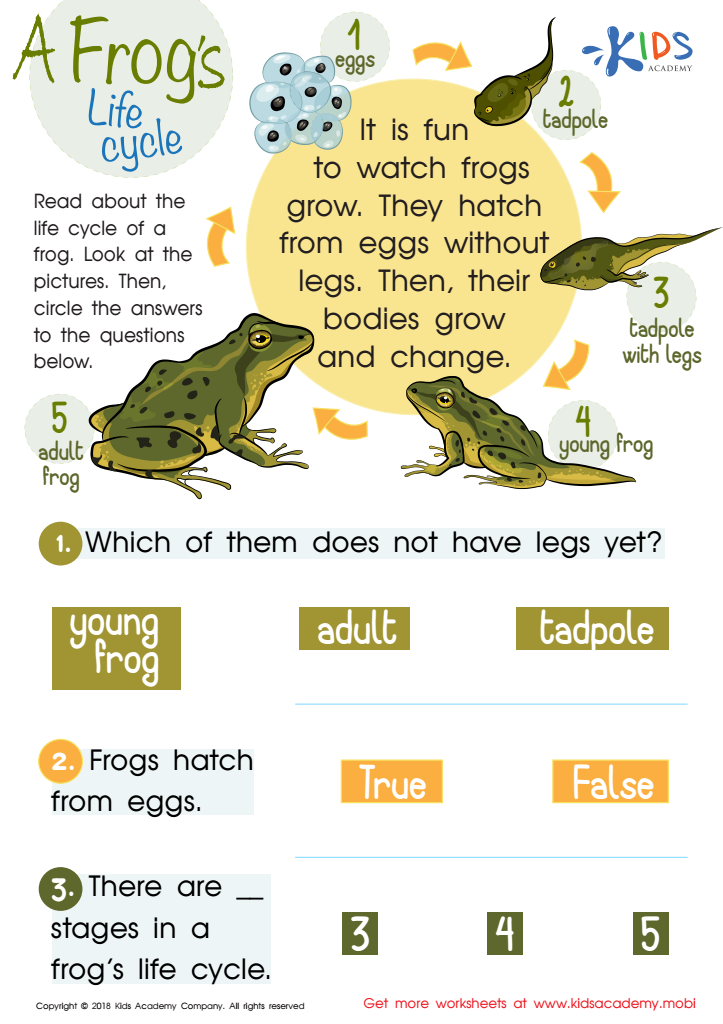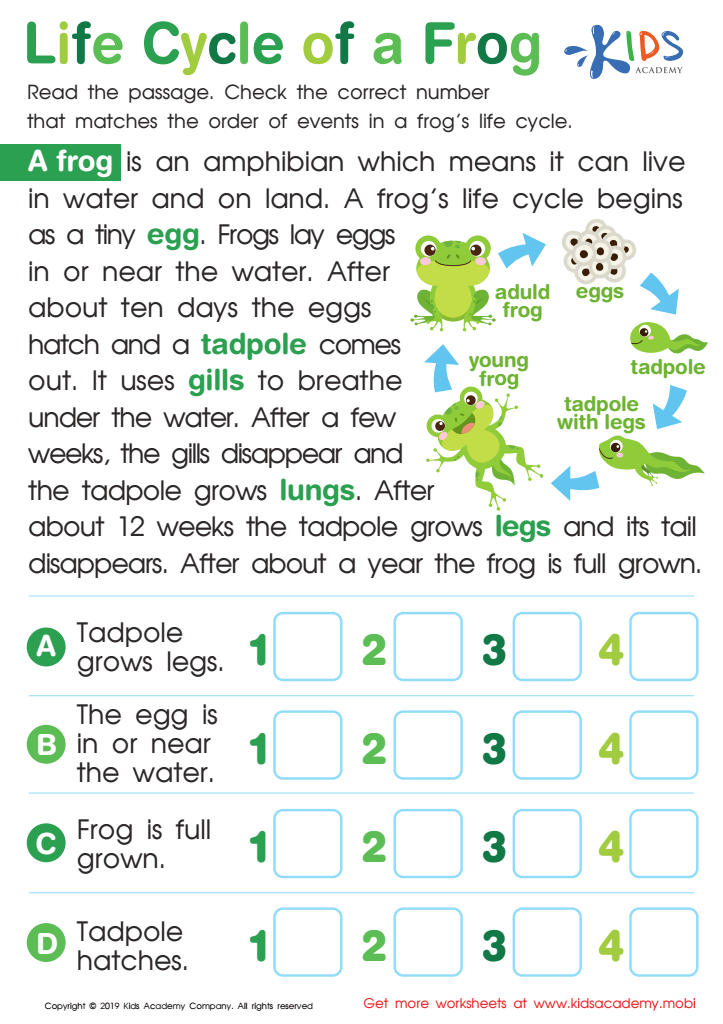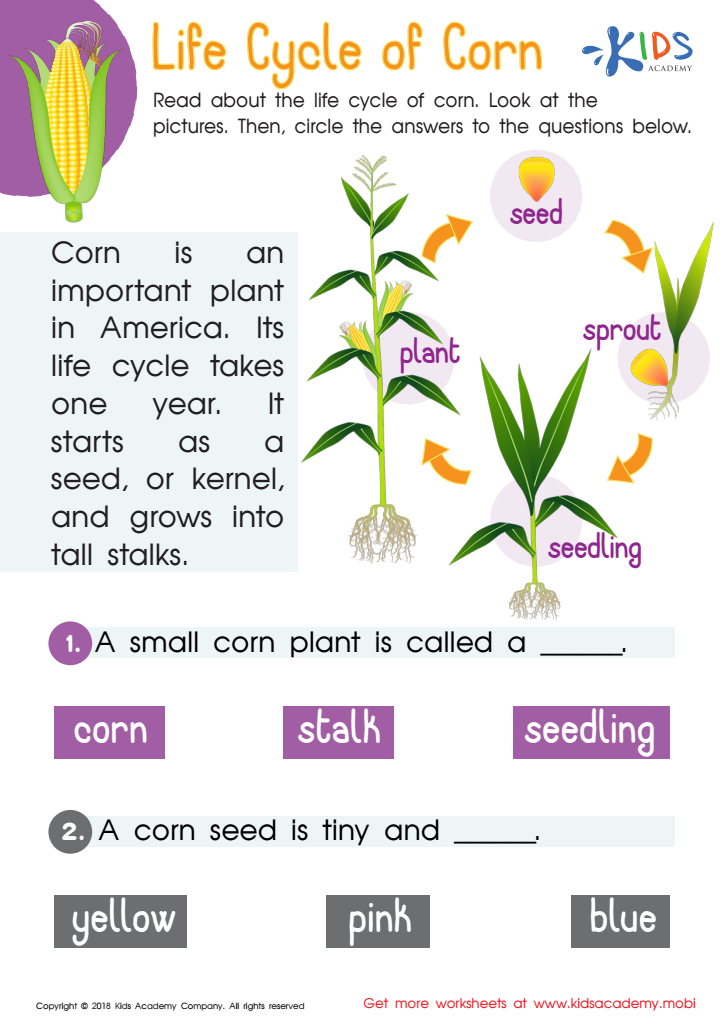Understanding life cycles Reading Worksheets for Ages 4-8
3 filtered results
-
From - To
Discover the fascinating world of life cycles with our engaging reading worksheets designed for children ages 4-8! These resources provide a fun and interactive way for young learners to explore the different stages of various life cycles, from butterflies to frogs. Each worksheet is tailored to enhance reading skills while promoting comprehension and vocabulary development. With colorful illustrations and age-appropriate activities, kids will enjoy learning about growth, change, and nature's wonders. Perfect for classroom use or home learning, these worksheets support early literacy and make understanding life cycles an exciting adventure. Download and watch your child's curiosity bloom today!


A Frog’s Life Cycle Worksheet


Life Cycle of a Frog Worksheet


Life Cycle of Corn Worksheet
Understanding life cycles is crucial for children aged 4-8, as it lays a foundation for their knowledge of the natural world. Both parents and teachers play a vital role in fostering this understanding, which can ignite curiosity and a love for learning.
Life cycles teach children about the stages of development in various living organisms, from butterflies and frogs to plants and humans. This understanding promotes critical thinking skills as children begin to recognize patterns, make connections, and ask questions about the life processes around them. Learning about life cycles also nurtures empathy and respect for living creatures, helping young learners to appreciate the environment and the importance of biodiversity.
Furthermore, reading about life cycles enhances literacy skills. At this age, children are developing their vocabulary, comprehension, and storytelling abilities. Engaging with books on life cycles infuses these skills with relevant and relatable content, making reading enjoyable and meaningful.
By emphasizing the importance of life cycles through educational activities and literature, parents and teachers help children build a solid foundation for scientific inquiry and environmental stewardship, equipping them with the knowledge and skills they need for future exploration. Ultimately, this understanding is essential for nurturing informed and responsible future citizens.
 Assign to My Students
Assign to My Students


.jpg)













